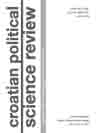Flex Actors and Philanthropy in (Post-)Conflict Arenas: Soros’ Open Society Foundations in the Post-Yugoslav Space
Flex Actors and Philanthropy in (Post-)Conflict Arenas: Soros’ Open Society Foundations in the Post-Yugoslav Space
Author(s): Paul StubbsSubject(s): Politics / Political Sciences
Published by: Fakultet političkih znanosti u Zagrebu
Keywords: Flex Actors; Soros; Post-Yugoslav Space; Post-Conflict; Philanthropy
Summary/Abstract: This paper explores, through interviews and archive material, key actors in George Soros’ Open Society Foundations in the post-Yugoslav space as “flex actors” or “flexians” who generate, occupy and transform new emergent spaces of power, advancing their own personal agendas as much, if not more, than organisational agendas. The focus is on three pivotal ‘moments’: the break-up of Yugoslavia and the wars in the early 1990s; the changes in Croatia and Serbia after Tuđman and Milošević in 1999-2000; and the current confluence of austerity and new movement activism in the European periphery. The Soros “flexians” acted as key definers of conflict and post-conflict spaces in emerging and unstable discursive, institutional and political environments, with their claims to intellectual superiority, cosmopolitan sentiment and profound anti-nationalism serving to both define the contours of political opposition and reduce its broader resonance and impact. Later, a turn to ‘policy’ actually expanded the political opportunity structures for these “flexians” who often became key players in a contradictory ‘modernisation’ project emphasising the ‘backwardness’ of the region, or at least its political leadership, in relation to an imagined West and, at the same time, arguing that only domestic intellectual elites such as themselves could translate the values of modernity into implementable schemes. In the current ‘moment’, “flex actors” in the Foundations are negotiating new and complex relationships with movements against commodification, crony capitalism, the erosion of the right to public space and ‘neo-liberal’ austerity politics.
Journal: Politička Misao
- Issue Year: L/2013
- Issue No: 05
- Page Range: 114-138
- Page Count: 25
- Language: English

